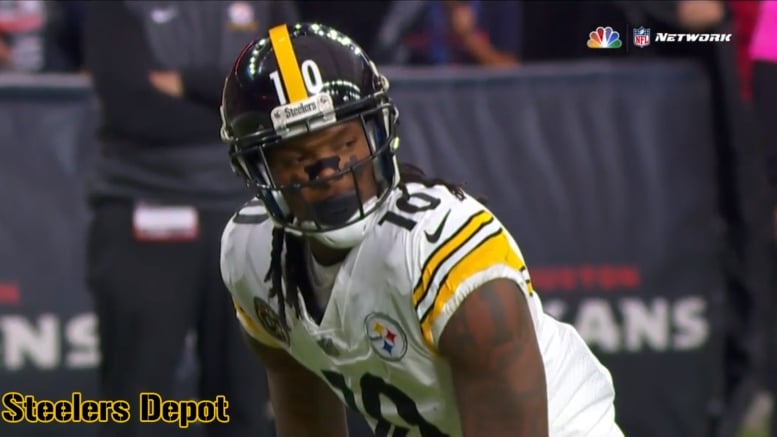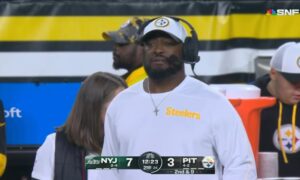Pittsburgh Steelers General Manager Kevin Colbert was exalted for getting a third-round pick out of the Oakland Raiders for Martavis Bryant in 2017. People had a much different initial reaction to his haul of a third-round pick in addition to a fifth-rounder in exchange for Antonio Brown earlier this year, although as time goes on, more and more people are seeing that compensation as reasonable based on the wide receiver’s demands and behavior.
The first trade didn’t do much for Oakland, and given that the Steelers used that pick on a potential future at quarterback, the results are probably going to be out for a while on their end. But Bryant was already released by the Raiders once before being brought back, struggling on the field, getting injured, and then receiving a third suspension.
The Raiders re-signed Bryant one week into the season. He ultimately played in eight games, catching 19 passes (dropping a few more) for 266 yards without registering a score. He suffered a knee injury that landed him on injured reserve on December 5. A little more than a week later, he was suspended indefinitely for the second time in three years.
According to Dan Graziano, the wide receiver intended to apply for reinstatement within the new few weeks, and he reportedly intends to argue that the league’s drug program “is not set up to offer players access to proper treatment for mental health issues”.
Suspended former Steelers/Raiders WR Martavis Bryant told me he’s planning to apply for reinstatement in the coming weeks. Bryant has been arguing with the league that its drug program is not set up to offer players access to proper treatment for mental health issues.
— Dan Graziano (@DanGrazianoESPN) May 6, 2019
Other players such as former Steelers running back DeAngelo Williams have made similar arguments, and Bryant is known to have battled with mental health issues during his previous suspension. While it can be debated whether or not the lack of treatment for mental health issues is grounds for justification of reinstatement, it certainly wouldn’t hurt for the league to provide such services to players whom they deem to have such issues that they don’t want them in the league.
Players who are suspended are still part of the National Football League and the NFLPA and have rights, insurance, and all that. They shouldn’t be treated as something separate from the rest of the group of players, who otherwise would have access to mental health resources.
Players face a lot of isolation during their suspension periods, during which they have little to no contact with their teammates and coaches and are largely asked to create their own recovery plans, which is subsequently either approved or denied by the league.
Especially given the number of high-profile players who have been suspended, it can be reasonably argued that it is in the league’s own self-interests to give these players the best opportunity to make it to the other side of their suspensions with the best chance available to return as a productive contributing member of the game.
It wasn’t so long ago that Bryant’s name was bring spoken of within the conversation of rising stars. He caught eight touchdown passes in 10 games as a rookie and had some big performances in the postseason. He hasn’t been able to get back on track in the same way since his indefinite suspension that cost him the entirety of the 2016 season.








